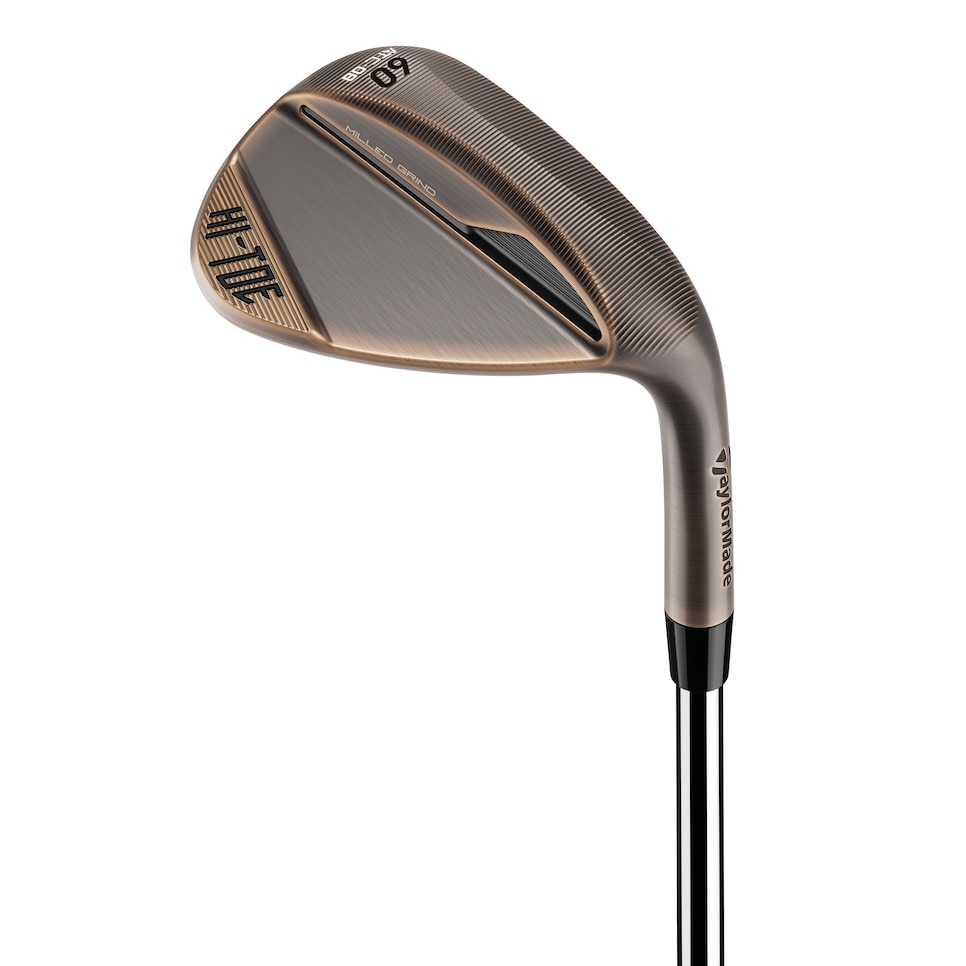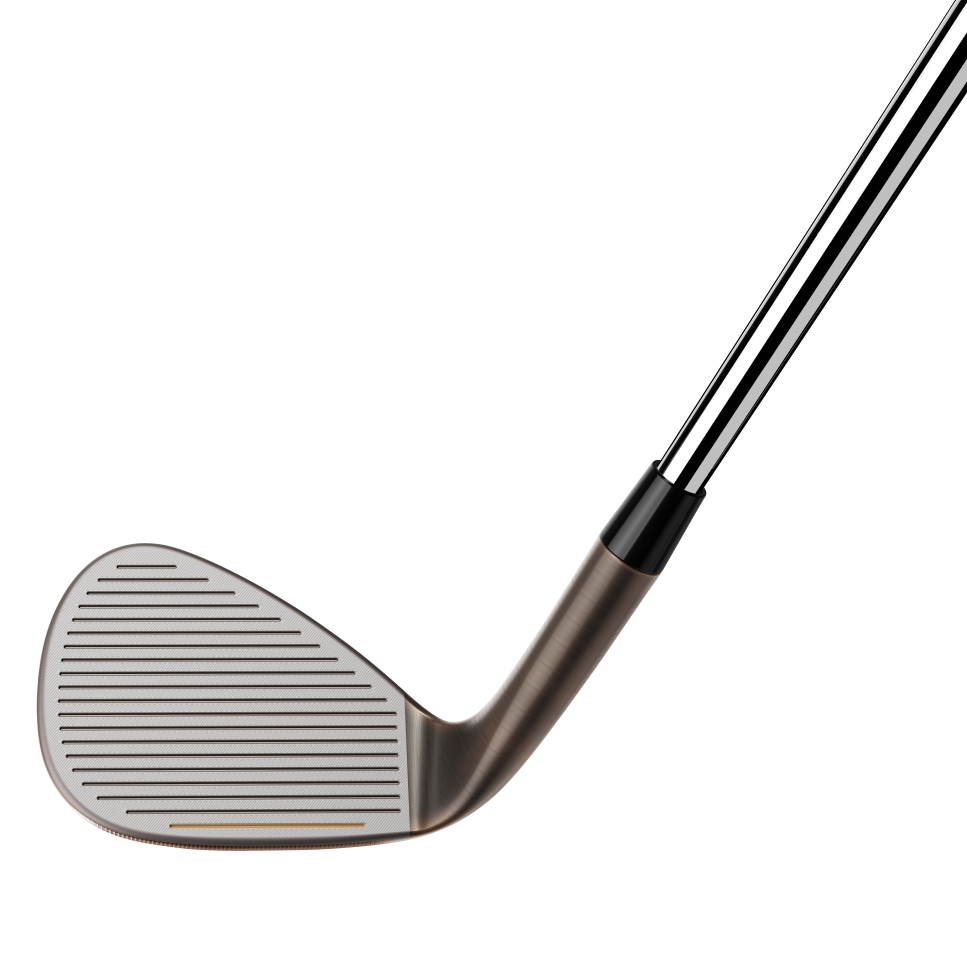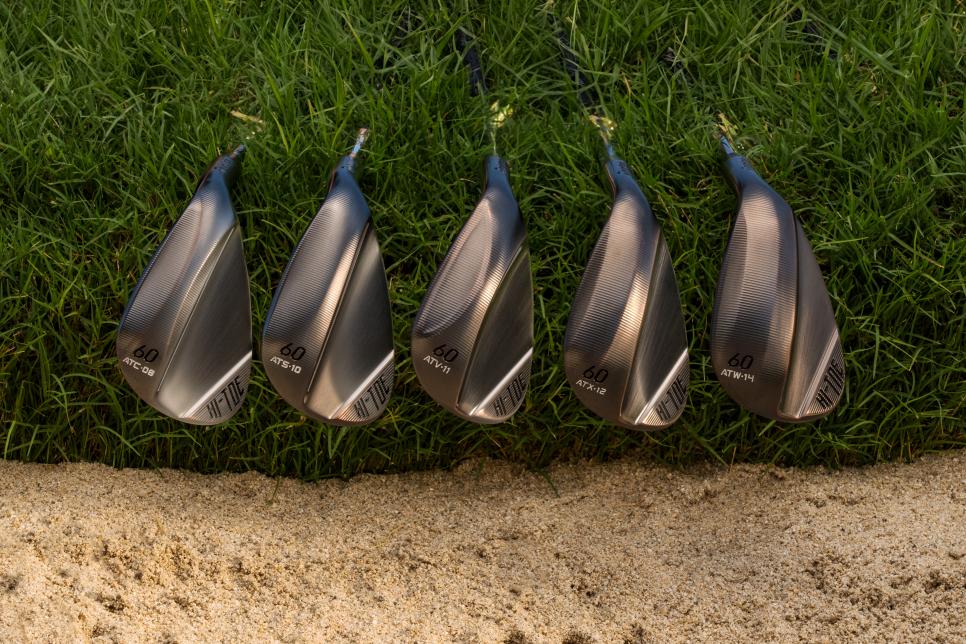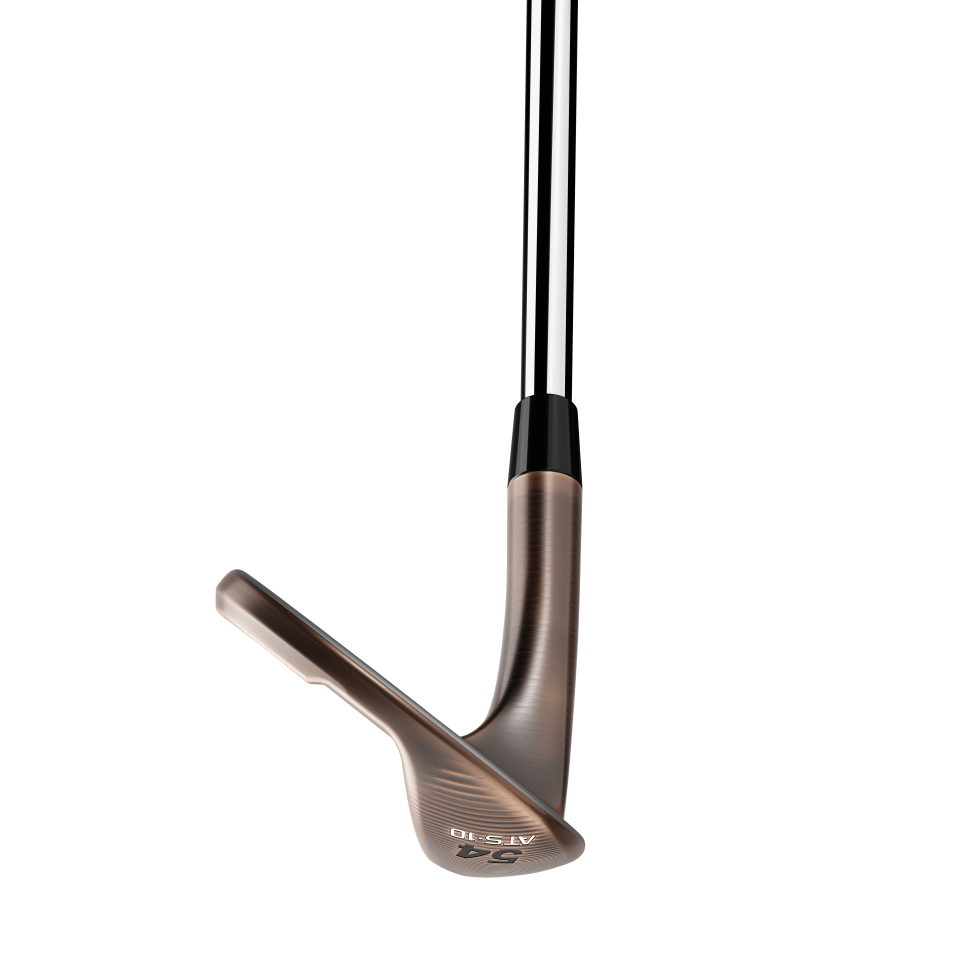WHAT YOU NEED TO KNOW: The TaylorMade Hi-Toe 4 wedge continues the company’s larger-faced, high centre-of-gravity design with the same original mission: pushing mass higher helps to produce a lower-flighted, higher-spinning design. This upgrade offers more turf-interaction enhancing sole grinds (five), augmented friction elements between the grooves to improve spin and confidence-inspiring, full-face grooves starting at lofts 54 degrees and higher.
PRICE: $309 each. Five grinds; lofts range from 50 to 60 degrees. Available in Australia for pre-order now.
3 cool things
1. Higher purpose. The Hi-Toe 4, like its predecessors, uses the pronounced shaping to shift the centre of gravity higher and towards the toe. A higher centre of gravity will help to produce shots with more spin. On the Hi-Toe 4, that weight pad in the upper toe section is more distinct, enhanced by the way the back of the club is thinned out, particularly a section low in back, to create more mass that can be concentrated in the toe pad. The new shape is more contained within the overall design, rather than an appendage and the extra mass in the toe section also benefits from the weight-savings from a tapered hosel design.

“The shape has evolved over time from leading edge radius, sole camber, hosel taper,” said Patrick Baxter, TaylorMade’s manager of product creation for wedges. “A lot of players wanted to play Hi-Toe but didn’t like the radical look. But we still went back to roots of the original in keeping that higher spin and lower launch trajectory.”

2. Spin precision. There are several elements brought to the Hi-Toe 4 from TaylorMade’s established wedge technologies in its Milled Grind 4 line. Among those are the computer-milled sole grinds that eliminate excessive hand work in the manufacturing process (more on those specifics below), but also the laser-etched ribs between the grooves to create additional surface friction. Called “spin tread”, the rows of diagonal lines between the grooves are designed to redirect moisture to create cleaner contact with the groove edges for more grab. The effect targets both rainy conditions, as well as damp turf from early morning dew.
In addition, the Hi-Toe 4, cast from a soft 8620 carbon steel, features a similar “raw” finish found on Milled Grind 4 that allows for the groove design to be cleaner and uncompromised by any final coating. For all lofts of 54 degrees or higher in the line-up, full-face grooves are standard.

3. Ground control. An upgrade from the preceding model’s three sole grinds, the Hi-Toe 4 features five sole shapes that hearken back to early designs as well as break new ground. The designs are meant to line up with certain conditions and swing types.
Among the originals is the ATV sole, which first was part of the TaylorMade line-up in 2012. Built for versatility, it’s got a concave sole shape for better contact off tight lies and more extreme bounce for more efficient open-face shots. The other grinds include:

ATS: Features an increased four-way camber for versatility on both open and closed face shots.
ATX: The three-level sole shape uses a blunt leading edge to prevents digging in softer conditions, while a steeper trailing edge aim to create a cleaner exit from the turf.
ATC: Better for players with a shallow attack angle, the narrow split sole features a lower bounce.
ATW: The widest sole in the line-up also features a higher bounce for forgiveness, particularly from the sand.
“Five unique grinds complement a variety of playing conditions and swing styles for golfers that are looking for more versatility and forgiveness,” says TaylorMade wedge designer Greg Cesario. “The designs were created with the goal of perceived and noticeable differences between all grinds and wedge models.”

